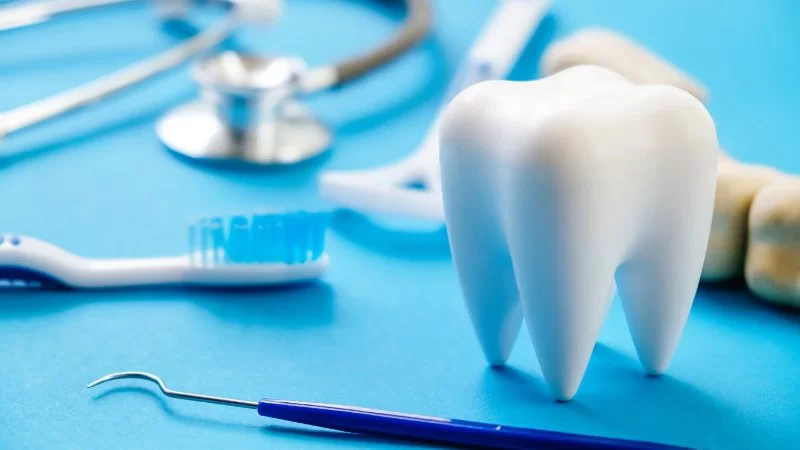
- Why-Oral-Care-Matters-During-Cancer-Treatment
- Daily-Oral-Hygiene-Tips-for-Cancer-Patients
- Managing-Common-Side-Effects-in-the-Mouth
- Real-Patient-Stories-and-Coping-Strategies
- Professional-Support-and-When-to-Seek-Help
- Tools-and-Products-That-Make-a-Difference
1. Why Oral Care Matters During Cancer Treatment
Cancer patients often face an unexpected challenge: changes in their oral health. Chemotherapy and radiation—particularly in the head and neck region—can cause dry mouth, gum irritation, infections, and painful sores. These side effects don’t just impact comfort; they can interfere with eating, speaking, and even delay treatment.
A proactive approach to oral hygiene during cancer care is more than cosmetic—it’s part of total body wellness. According to a report from the National Cancer Institute, up to 40% of patients undergoing chemo experience mouth complications, many of which are preventable with proper care routines.
For patients looking to manage these challenges, Family Dentistry Online provides access to trusted dental resources, supportive products, and clinics experienced in working with oncology patients.
2. Daily Oral Hygiene Tips for Cancer Patients
Maintaining a gentle, consistent oral care routine is crucial during treatment. Here are effective strategies to minimize discomfort and protect the mouth's delicate tissues.
Use a Soft-Bristled Toothbrush
Hard bristles can irritate tender gums or sensitive patches. A soft-bristled or baby toothbrush used with gentle, circular motions can reduce irritation while still removing plaque.
Choose a Mild, Alcohol-Free Mouthwash
Avoid mouthwashes with alcohol, which can dry and sting. Instead, use a fluoride rinse or a custom saltwater and baking soda solution (¼ tsp salt + ¼ tsp baking soda in 1 cup of warm water) to soothe and clean.
Brush and Rinse After Every Meal
Frequent rinsing—especially after meals and medication—reduces the risk of mouth sores and bacterial buildup. Be sure to avoid overly spicy or acidic foods that could cause further irritation.
Stay Hydrated and Use Saliva Substitutes
Dry mouth is a common side effect. Sip water regularly and consider sugar-free xylitol gum or prescription saliva substitutes to keep tissues moist.
3. Managing Common Side Effects in the Mouth
Oral health issues during cancer treatment aren’t always preventable, but they can be managed with the right techniques.
Mouth Sores (Mucositis)
Mouth sores may appear as red or white patches and make eating painful. Topical gels like lidocaine or prescribed “magic mouthwash” can provide temporary relief. Cold foods like yogurt or smoothies may be easier to tolerate during flare-ups.
Oral Thrush (Candidiasis)
Weakened immunity and dry mouth can lead to fungal overgrowth. White patches on the tongue or cheeks may be a sign. If detected, antifungal rinses prescribed by your dentist or oncologist can help.
Gum Bleeding and Inflammation
Bleeding gums may result from lower platelet counts or irritation. Switch to ultra-soft brushes and avoid flossing if bleeding is excessive. Speak with your dental team before using new products.
4. Real Patient Stories and Coping Strategies
After her breast cancer diagnosis, 52-year-old Sarah J. from Denver recalls that it wasn’t the chemo, but the painful mouth sores that made her meals miserable. “I couldn’t enjoy food, and I started avoiding people,” she shared. Her dental team helped her build a routine with gentle brushing, prescription rinses, and bland, soft meals that brought some relief.
Similarly, Thomas K., a throat cancer survivor, kept a daily journal of how different products affected his mouth. Over time, he found a mix of chamomile tea rinses and cool mist humidifiers helped him sleep better and talk without pain in the morning.
These real stories underscore that no one solution fits all—but with persistence and the right tools, patients can regain comfort and control.
5. Professional Support and When to Seek Help
Dental checkups should be scheduled before cancer treatment begins. This allows your dentist to identify issues and prepare a preventive plan tailored to your treatment type.
Warning signs that require immediate attention include:
- Persistent ulcers that don’t heal
- White patches or coating on the tongue
- Unusual bleeding or swelling in the gums
- Difficulty swallowing or speaking
If you’re unsure where to start, Family Dentistry Online connects patients with oncology-aware dentists who understand the complexities of treatment side effects and offer compassionate care.
6. Tools and Products That Make a Difference
Today, many companies and clinics offer specialized oral care products designed specifically for cancer patients. These include:
- Toothbrushes with extra-soft bristles and flexible necks
- Fluoride toothpaste made without strong flavors or SLS (a common irritant)
- Mouth moisturizers and oral gels that provide long-lasting hydration
- Rinse cups pre-filled with safe saline and baking soda mixes for convenience
At Family Dentistry Online, you’ll find carefully curated oral hygiene tools and professional guidance that align with your stage of treatment and symptom severity.
A healthy mouth isn’t just a comfort—it’s a defense line in your cancer journey. Investing in your oral hygiene now can prevent complications later and help you eat, speak, and smile with greater ease.







 Coast Dental4.0 (514 review)
Coast Dental4.0 (514 review) Ryan L. Lindner, DDS0.0 (0 review)
Ryan L. Lindner, DDS0.0 (0 review) Park Family and Cosmetic Dentistry5.0 (51 review)
Park Family and Cosmetic Dentistry5.0 (51 review) Pediatric Dentistry of Cape Coral4.0 (178 review)
Pediatric Dentistry of Cape Coral4.0 (178 review) Sylmar Dental & Braces5.0 (111 review)
Sylmar Dental & Braces5.0 (111 review) Mohn Family Dental4.0 (43 review)
Mohn Family Dental4.0 (43 review) The Importance of Oral Health Education During Pregnancy for a Healthy Pregnancy
The Importance of Oral Health Education During Pregnancy for a Healthy Pregnancy Best Tips for Brushing Your Teeth Properly for Healthy Gums: Essential Techniques for Oral Health
Best Tips for Brushing Your Teeth Properly for Healthy Gums: Essential Techniques for Oral Health Why Skipping Dental Checkups Can Lead to Bigger Oral Health Problems
Why Skipping Dental Checkups Can Lead to Bigger Oral Health Problems Advantages of Porcelain Dental Restorations
Advantages of Porcelain Dental Restorations How Can Diabetes Cause Tooth and Gum Problems? Preventing and Managing Oral Health Issues
How Can Diabetes Cause Tooth and Gum Problems? Preventing and Managing Oral Health Issues Healthy Habits for Promoting Good Oral Health and Hygiene: Tips for a Healthy Smile
Healthy Habits for Promoting Good Oral Health and Hygiene: Tips for a Healthy Smile